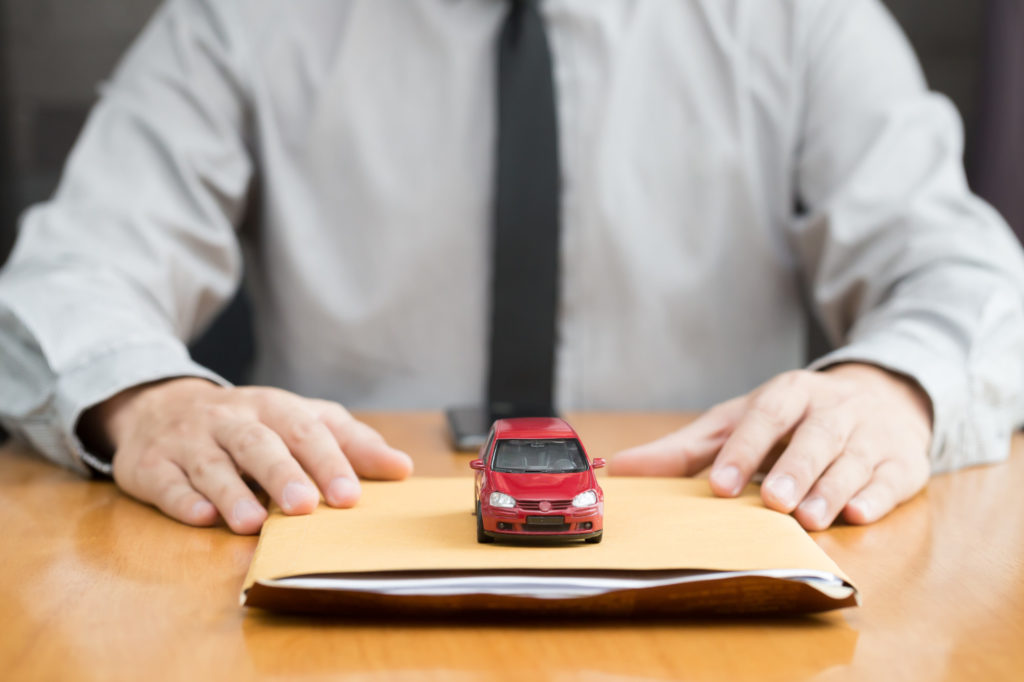Did you know that more than 6.45 million vehicle crashes occurred in the US in 2017?
That's right.
Granted, those figures show a decrease of 369,000 accidents from the year before. Still, it led to 4.53 million cases of property damage and worse, 1.63 million injuries.
With all these accidents occurring each year, it's no wonder that the rate of totaled vehicles has also gone up. In the first quarter of 2019 alone, total loss vehicles accounted for 19.1% of all insurance claims.
You may think that these totaled units end up as junk metal. However, many of them actually become salvage title cars. In fact, these salvage vehicles are now a key player in the $900-billion auto aftermarket.
The question is, what exactly does salvage title mean? How do you know that a car is a salvage unit? Most importantly, is it a good idea to buy or sell these vehicles?
We’ll answer all these questions in this post, so make sure you read until the end!

What Is a Salvage Title?
A “salvage title” is an official, legal brand denoting that a car insurer has deemed a vehicle to be a total loss. In most cases, a total loss occurs when a vehicle has sustained significant damage. Meaning, the cost to repair it is more than its actual cash value (ACV).
Insurers also use the “salvage” brand to let car buyers know the condition of a vehicle. The salvage title tells consumers that a car has sustained damage and its value has gone down.
Insurers use the total loss threshold or total loss formula to decide if they would total a vehicle. Most states require insurance companies to follow the total loss threshold. Other states allow insurers to set their own thresholds.
The threshold varies from state to state though, with most set at 75%. Iowa has the lowest, at 50%, while Texas has the highest, at 100%. So, for a car to be a total loss in Texas, its repair costs should be the same as its ACV.

From Undrivable and Unregisterable to Salvageable and Operable
An insurer who decides to total a vehicle will need to request a salvage certificate. This will come from the state's motor vehicle bureau. Once issued, the certificate renders the vehicle legally undrivable and unregisterable.
The insurance company usually takes ownership of the damaged vehicle. In return, they pay the insured car owner the vehicle’s actual cash value (before the accident). In some states, car owners can “buy off” the damaged vehicle from the insurer.
Either way, the party that takes ownership of the damaged vehicle may sell or retain it. Insurance companies often sell such units at salvage auctions. Auto salvage yards are the usual buyers at such events, as they can part out or rebuild the vehicles.
Car owners who decide to retain the vehicle can keep the car and repair it on their own too. In this scenario, the salvage vehicle needs to pass a state inspection first. Only after it passes can the owner re-register the vehicle.
If it does pass, the motor vehicle bureau will rebrand the title from “salvage” to “rebuilt”. However, the “salvage” title will remain on the vehicle's history report. Meaning, everyone will still be aware that the vehicle was once deemed as a total loss.

The Drawbacks to Rebuilding and Selling a Total Loss Car
Before you decide to keep and rebuild a salvage vehicle, consider the time and money you'll spend on it first. For starters, the cost of vehicle repairs alone has gone up 61% from 2000 to 2017. You could end up spending thousands of dollars and be unable to recoup your expenditures.
Moreover, there are very few insurers willing to offer coverage for rebuilt vehicles. Those who do charge rates that are higher than those for vehicles that have never been in an accident.
One reason is that a once-salvage car has a higher likelihood of breaking down again. Another is because of a potential mix-up when it comes to damage claims. They don't want to confuse damages from the pre-salvage accident with those from a new crash.
These are the same reasons that you’d have a hard time finding a private buyer for a salvage car. Yes, you might find a dealer who'll take the damaged vehicle off your hands, but don't expect a good deal.
Keep the same things in mind if you're the one looking to buy a salvage car. Even if it's been rebuilt and it looks fine on the outside, its inside may be a different story. Unless you're a pro mechanic yourself or you're willing to hire one to perform a thorough inspection, think twice about buying a salvage car.

Other Options to Deal with Total Loss Vehicles
Many car owners who decide to keep salvage title cars sell the parts instead. However, even if they don’t intend to drive it, they first need to get a nonrepairable vehicle certificate.
Another option is to sell the salvage car as-is to cash car buying companies. In this case, car owners don't have to carry out any kind of repair, but they’ll still get hard cash for their totaled car. This is one of the easiest and fastest ways to turn a wrecked vehicle into cash.
Sell a Salvage Car the Fastest, Easiest Way
If you own a salvage title car, don't think that you'd have to drop the price considerably just to get rid of it. Junkyards are not your only option, as legit and reliable cash for car companies may offer you a better rate. So, take the time to explore all your potential buyers before settling for the first offer you get.
If you're ready to let go of a salvage car with as little effort as possible, we can help. Get an offer on your car or ring us up now so we can help you figure out how much your ride is worth!




